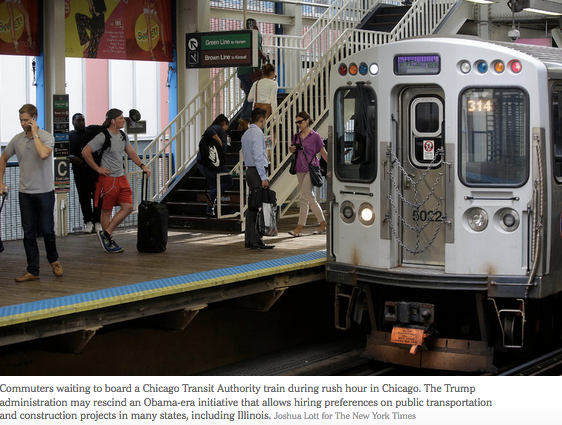When the Chicago Transit Authority chose a Chinese joint venture to build the city a new fleet of rail cars for $1.3 billion, the manufacturer’s vow to construct an assembly plant on the Southeast Side helped tilt the scale in its favor.
“This is a classic win-win for Chicago,” Mayor Rahm Emanuel said last year when he announced the contract and the 170 jobs that the factory would create, in addition to training programs and community hiring.
To Bombardier Transit Corporation, the losing bidder, however, the hiring sweetener was proof of what it called a “rigged” and possibly illegal procurement process that denied “jobs to fellow Americans outside of Chicago.” In this case, it was referring to Americans who live in Plattsburgh, N.Y., and work at Bombardier’s sprawling assembly and test center there.
Over the last decade, more and more cities, on the coasts and in the heartland, have tried to leverage their buying power to fuel economic development through local hiring provisions on public projects that favor veterans, residents and low-income workers. But these efforts have been bedeviled by political, economic and legal challenges that have divided business, union and political allies.
Now the Trump administration may rescind an Obama-era initiative that allows hiring preferences on transportation and construction projects in states like New York, California, Texas, Virginia and Illinois, a prospect that has alarmed advocates of such programs.




